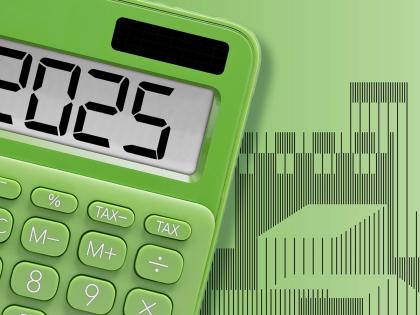Net Lease Investors Eye Cross-Border Opportunities and New Property Types in 2025
As interest rate volatility persists, net lease investors explore new markets and sectors
The net lease market is positioned for change in 2025, with investors monitoring trends in geographic expansion and property types, as well as shifting economic factors. While the US remains a key market for many, international opportunities are gaining ground, particularly in Mexico, as noted by Tyler Swann, managing director of investments at W. P. Carey.
“Mexico is a market we’ll be watching closely next year,” says Swann. “We’re seeing more sale-leaseback and build-to-suit opportunities there, particularly as more American and International manufacturers set up shop in the country.”
Alongside these international prospects, investors are exploring new property types and preparing for economic factors like ongoing interest rate volatility and tariffs. By keeping an eye on these trends, investors can better position themselves for what’s next, says Swann.
Geographic Expansion and Emerging Property Types
While the US and Europe remain the cornerstone of net lease investment for W. P. Carey, Swann is monitoring other international markets, such as Mexico and Canada, for growth. “Our largest transaction in 2023 was in Canada,” he says. The country’s interest rates differ from those in the US, and Swann is keeping a close watch on how this impacts market pricing with an eye to expanding further if the opportunity exists.
New opportunities in 2025 aren’t limited to geography, Swann notes. Some non-traditional property types are also getting a look from the net lease world. “We’re seeing more activity from net lease investors in the data center world,” says Swann. “Clearly, there’s a need for a tremendous amount of capital to fund the buildout of these new data centers.”
However, he adds that W. P. Carey takes a selective approach, focusing on long-term leases to single tenants to ensure returns comparable to the company’s core industrial investments.
Healthcare properties, particularly those in prime locations, are also attracting attention. “To the extent that we can find those well-located healthcare assets, I think that‘s something we’ll explore in 2025,” says Swann. Swann sees the key criteria for healthcare investments to be their proximity to population centers with favorable demographic trends and the asset’s importance to the local community.
Continued Interest Rate Volatility and an Unpredictable Market
As the net lease market heads into 2025, interest rate volatility remains a key concern for investors. Recent fluctuations in long-term Treasury rates have had a direct impact on asset pricing and overall investment strategies.
“Long-term financing rates are also critical for how we price assets with long-term leases,” says Swann. “The uncertainty surrounding interest rates is compounded by economic factors, including potential deficit spending and the risks of future inflation.”
Looking ahead, investors will need to remain flexible, evaluating opportunities, property types, and the broader economic trends to stay ahead of market shifts.
“Interest rate volatility can actually benefit public REITs like W. P. Carey,” Swann notes. “We’re less sensitive to rate movements, which allows us to close deals even in volatile environments.”

Related Topics:
You May Also Like:

Where Net Lease is Heading
With financing options restricted by interest rate uncertainty, corporate real estate sellers have been turning to sale-leasebacks. It’s easy to see why: these deals offer liquidity and immediacy. For...
What’s Next for Commercial Real Estate?
After several challenging years contending with the impacts of a global pandemic, the commercial real estate market finally seems to be healing. As noted in the latest Emerging Trends in Real...